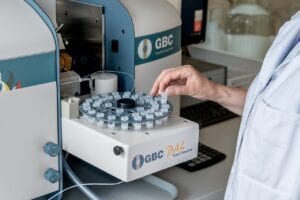Although advances in lung cancer care were overshadowed this year by news about the pandemic, Dr. Jennifer Carlisle’s recent interview with Oncology gave details of spectacular advances in lung cancer care in 2020.
Dr. Carlisle is a medical oncologist at the Winship Institute at Emory University. The good news that Dr. Carlisle was anxious to report was that the FDA just approved several new treatments and two targetable mutations in NSCLC (non-small cell lung cancer) have been newly identified.
When asked how she would categorize 2020 Dr. Carlisle did not hesitate to say that it was a “remarkable” year, seeing ten FDA approvals. She went on to explain that some of the approvals were for adaptations of regimens that had already been FDA approved, while other approvals were for new therapies.
Dr. Carlisle emphasized that the newly developed therapies were approved thanks to the number of patients who enrolled in clinical trials in spite of the pandemic. The doctor said it was through the clinical trials that they learned of lung cancer patients being at very high risk for COVID-19’s most severe symptoms.
Dr. Carlisle credits the TERAVOLT global consortium for its goal of working to understand COVID-19’s impact on patients who have thoracic malignancies. (The thorax is the area between the abdomen and the neck.)
The doctor points out that patients who are older than sixty-five, especially those with several medical disorders (comorbidities) face a greater risk of COVID-19 complications. Dr. Carlisle said that certain treatments could possibly add to that risk.
An increased number of deaths resulted from chemotherapy or chemotherapy/immunotherapy than immunotherapy alone.
About Precision Medicine
The question was asked of Dr. Carlisle whether precision medicine is being fully utilized. Dr. Carlisle indicated that in the past doctors were focusing on specific targets and missing other parts of the genome (NIH definition: An organism’s complete set of DNA including all of its genes).
The doctor explained that now rather than select therapies according to the type of cancer (tissue, organ location) the therapy is selected according to an analysis of the patient’s genomic sequence; in other words, looking at the tumor’s genetic code. Dr. Carlisle believes that it will also be possible to target resistance mechanisms that occur during treatment.
Dr. Carlisle was asked if she witnessed any disappointments during the past year. She responded that she believes there were more positive rather than negative results to discuss. First and foremost there were four immunotherapy approvals that are now being used in new therapies.
- Tecentriq in PD-1 high patients
- Nivolumab and Opdivo combined with 2 cycles of chemotherapy, or Opdivo and Yervoy combined as a “chemotherapy-sparing” drug
- Advances in small cell lung cancer (SCLC) and NSCLC
- Imfinzi was given accelerated approval by the FDA for patients with SCLC cancer progression
Dr. Carlisle mentioned that long term data is now available on patients with high PD-L1 expression who were treated with Keytruda as a single agent. She explained that it is rewarding now to be able to tell a patient that although their NSCLC may not be curable, it can now be treated.
Looking Forward
Dr. Carlisle expressed optimism for reaching several new targets in lung cancer for 2021. The first is targeting a mutation known as KRAS. She said that they have known about these mutations for decades but they were unable to access them. Now they have inhibitors that can specifically attack KRAS.
HER2 is second on the list for 2021. Dr. Carlisle said that there is exciting data relating to Enhertu. An antibody that brings a payload to the cells that express HER2. It has generated a sixty percent response rate.
Other good news came from the American Cancer Society’s report that cited the largest one-year decrease in cancer deaths. This was mostly due to the decrease in lung cancer mortality and most certainly due to the targeted therapy options.






